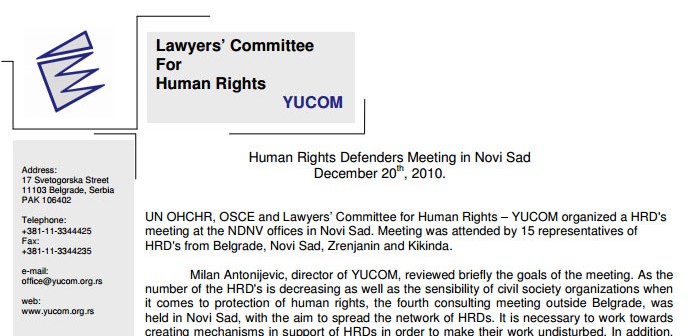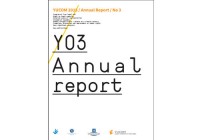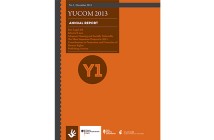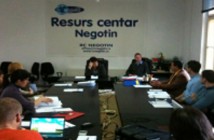Daiana Falloni, Head of Democratization Department of the OSCE Mission to Serbia, said that every society should have people whose mission is to protect and promote human rights as well as protection of victims of human rights violations. These people are brave and as such deserve support and recognition for their work. She stressed that there are still a lot of cases in which the HRDs themselves become victims of human rights violations. This is particularly true of female HRDs, because the change of the position of women in society is a very controversial issue. Also, this is a reality of those HRDs who are engaged in the protection of economic and social rights, because those are the areas where activities are aimed at fair distribution of resources or finding people who had lead to this condition who are responsible for action or inaction. Therefore, there is a major risk of creating many enemies.
Recognizing the role of HRDs and the role of civil society, OSCE set up a contact person for the HRDs in 2007 in Warsaw, who is working very closely with other international organizations dealing with HRDs, primarily the UN and Council of Europe. The contact person works for the
purpose of supporting of HRDs networking and building their capacity.
Marija Raus, HR advisor at UN OHCHR, stated that the issue of position of HRDs is a very important issue for each country. The protection of HRDs is an area that is at least normatively determined. The whole system of human rights is based on the assumption that NGOs and individuals would participate in this system. The UN Human Rights Council is also relied on NGOs in their assessments of the situation of human rights, although within the Council there is little concern for the NGOs.
Serbia is known as a country where civil society is developed, but this estimate covers the period before 2000, when the intellectual elite had been involved in the civil sector. Today, most of the elite moved to the government sector. The issue of HRDs is important for the UN, which is demonstrated with the fact that the International Human Rights Day in 2010 was dedicated to the HRDs.
Marija Raus also pointed that the office of the UN OHCHR enlightens activities of protection and status of the HRD’s as a priority. In this regard, the UN Office of Human Rights in Serbia, together with the OSCE and YUCOM, is making an overview of the situation in which the HRD’s work, in order to form together a platform in 2011 and gather this experience into a strategic document and recommendations which should be sent to the Government to address HRD’s in Serbia. One of the findings in the current work, is that there is little insight in the capital city on problems of HRDs at local level so the goal of these meetings is to learn about specific problems that hinder or prevent their work.
She pointed out, at the end of this presentation, that the Ministry of Human and Minority Rights organized a round table discussion on issue of media and human rights on the International Human Rights Day this year, where the ambiguous role of journalists in HRD’s remains an issue. She pointed out that it is not necessary to work in the NGO sector to become a HRD. She cited the example of journalist Brankica Stankovic who was awarded “The person of the Year” by the OSCE. The case of this journalist is one visible example of the pressure that the HRD’s are exposed to. However, the fates of such people who are excluded and ignored by the local authorities are present everywhere in Serbia.
Present HRD’s listed the problems they faced during their work.
There is a general impression that human rights are not a priority despite the many cases, which showed that the focus should be directed to them. Donors who provided funds for the protection of human rights leave, because they believe that Serbia is a sufficiently developed and democratic country. The government also does not see potential partners in NGOs dealing with protection of human rights. All these facts suggest that the protection of human rights is no longer a priority.
One of the problems is an increasing elitism in NGO sector. There are several NGOs that win at the competitions and that is a major problem that results in the marginalization of smaller organizations, lack of networking and solidarity among NGOs, which leads to the inability of smaller and less-known NGOs to receive funding for projects through competition. Participants have stated that the NGO sector in Vojvodina is not as developed as in central Serbia and therefore the province territory is a fragile partner in order to win projects in competitions.
Another problem is that the protection of human rights is selective. An example is well illustrated by Zrenjanin case, where since 2000, numerous factories and businesses were denationalised and consequently no one cared about the rights of workers despite new investments. Nobody thinks about the vetting process, which went round investors, and that local government funds are spent exclusively on the question of the status of Roma. It is inconceivable in 2010, for someone to build a strong image of the civil society as an organization for the protection of human rights, when responding only to the mass violations of human rights. Due to the lack of funds and the indifference of the local government, the organisations are sometimes forced to protect human rights selectively.
The reduction of the number of HRD’s is evident, and also the increasing indifference of young people for this area. The NGO sector does not give opportunities to young people, and as a result they go to the government or the private sector. There is a noticeable lack of activists who would like to deal with other human rights issues in addition to homophobia, war criminals and Roma issues. On that account, young people do not see the opportunity to express themselves in the civil sector.
Another problem that is present in the territory of Vojvodina is the lack of organizations that are entitled to assist HRD’s in court. An example is the case referred to the NGO “From the Circle”, which, two years ago, during the opening of the Youth Center CK13, was the target of attacks and slanders by certain media. Due to a lack of knowledge to whom to turn to for help, and incompetent lawyers for human rights, are now forced to pay heavy costs. It is also obvious that the HRD’s, who are the targets of the attacks, are not sufficiently informed about to whom they can turn to and where to seek protection.
It is also evident that journalists do not recognize themselves as HRD’s and have very little tolerance towards their colleagues. It is possible to be a HRD within governmental institutions, as it was Marko Karadzic. When Ružica Banda asked why the support of the government sector is missing when it comes to moving of the activists from NGO to governmental sector, when former colleagues find themselves in positions where decisions are being made, participants pointed out that political consciousness is prevalent in this case and that the inclination to one or another political party is inevitably. It is necessary to work on the methodology and cooperation.
The lack of support of the local government is also evident. Bearing in mind the lack of donors support, which is continuously decreasing, it is inevitable that the consequence is a reduction of the number of HRD’s.
Media: The problem of local media is that the most of them are privatized and do not want to report on human rights because they consider those issues are not of public interest and demand compensation for their contributions from NGOs. Also, the private media think that reporting on human rights does not contribute to increase of their ratings. Journalists who wish to report on human rights are characterized as human rights activists and face the impossibility of finding employment. There is also widespread refusal by the editors to publish stories on human rights. Mutual lack of understanding between the media and HRD’s is obvious.
The example of the round table “Media and Human Rights – the contribution of tolerance”, organized by the Ministry of Human and Minority Rights with the support of NGOs “Novi Sad School of Journalism” shows that the results of the analysis, which aimed to identify how much the topic of human rights presence in media during one month in 2010, were presented. Although about 15 representatives of the media attended the roundtable, no one of those journalists that were included in the analysis appeared, even thought they were invited by the Ministry.
It is necessary for NGOs to do everything in their power to make their stories and reports on human rights more attractive to the media and to impose their topics as a public interest.
The partnership of the media and NGOs:
One of the many problems is the attitude of the public opinion toward the HRD’s. In public opinion there is generally a negative image of the HRD’s that are often characterized as a foreign mercenaries, traitors, unpatriotics. Consequently, this negative image in addition to the loss of ratings, result in the fear of the media to become a target of the public opinion by informing on human rights violations.
Greater accountability of the activity of National Television is needed on the issue and also the activity of political figures who could, through their open support to HRD’s, contribute to change of the negative image of HRD’s. This is the only way that could modify the long-term image of the HRD’s.
A better knowledge of NGOs on international instruments relating to human rights is needed.
It is very important to support the NGOs sector to the Serbia’s EU accession, because Serbia has to adapt its entire legal system to the EU system and thus improve the human rights situation. A clear reduction of staff and a lack of interest of young people to deal with these issues are noticeable. Human rights are represented in a segmented and narrow form. On the other hand, there are indications that there is no awareness of the general public what human rights are, and for this purpose it is necessary to raise awareness on human rights and the ways in which they could be protected. It is also necessary to inform young people about activities that can be taken in order to change conditions in society.
On the fourth consultative meeting of HRD’s in Novi Sad, the following can be concluded:
The disturbed relations between NGOs and poor communication between them are present. The lack of solidarity from leading organizations in terms of inclusion of smaller organizations in the projects is evident.
It is necessary to establish the system of solidarity between organizations dealing with human rights and also active participation of the HRD’s in it;
The lack of support for the formation of new NGOs and new activities of NGOs on human rights. It is necessary to maintain interest of young people in human rights.
In cases of attacks, HRD’s have nowhere to turn for adequate protection in front of the court;
Generally the media at the local level are not interested in the topics of human rights because they are not profitable and do not recognize it as a public interest;
There is no defined methodology for cooperation between the State and HRD’s;
Youth organizations do not have the capacity to define strategies for promotion of issues or topics that are considered important;
Lack of knowledge of international instruments and consequently under-use of them by HRD’s.





